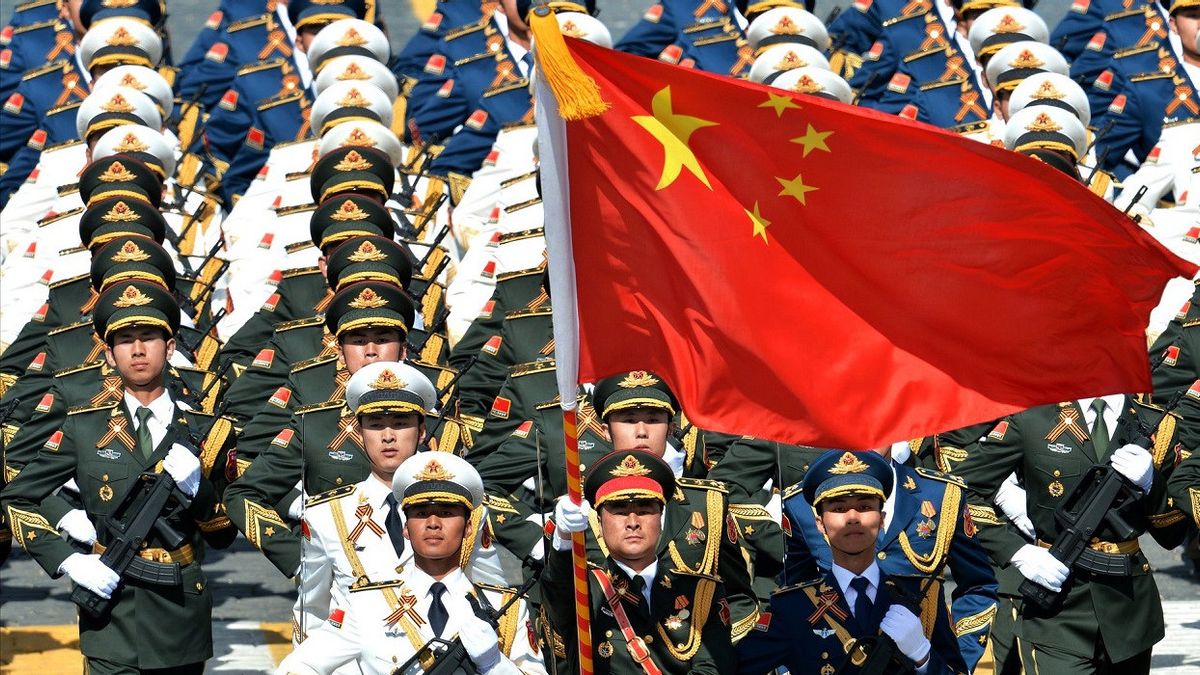JAKARTA - China will increase its defense budget by 7.2 percent this year, slightly surpassing last year's increase and higher than the government's economic growth forecast, as Premier Li Keqiang asked the armed forces to increase combat readiness.
The national budget released on Sunday showed 1.55 trillion yuan ($224 billion) earmarked for military spending.
The defense budget will be closely watched by China's neighbors and the United States, which is concerned about Beijing's strategic intentions and military developments, especially as tensions have risen in recent years over Taiwan.
In his work report for the annual session of parliament Premier Li said military operations, capacity building and combat preparedness should be "well-coordinated in fulfilling key tasks".
"Our armed forces, focusing on the goal of commemorating the centenary of the People's Liberation Army in 2027, must work to carry out military operations, increase combat readiness and enhance military capabilities," he said in a State of the Union address to members of the legislature, reported by Reuters March 6.
The rise in defense spending this year marked the eighth straight single-digit increase. As in previous years, no breakdown of spending was provided, only the total amount and the rate of increase.
Increased spending outpaced targeted economic growth of around 5 percent, which was slightly below last year's target as the world's second-largest economy faces domestic challenges.
Beijing is nervous about challenges on the front line ranging from Chinese-claimed Taiwan to US naval and air missions in the disputed South China Sea near Chinese-occupied islands.

China staged war games near Taiwan last August to express anger at then-US Speaker of the US House of Representatives, Nancy Pelosi,'s visit to Taipei.
Li Mingjiang, associate professor at the S. Rajaratnam School of International Studies in Singapore, said defense spending that exceeded forecasts for economic growth indicated China was anticipating facing greater pressure in its external security environment, particularly from the United States and the Taiwan issue.
"China's leadership is clearly intensifying efforts to prepare the country militarily to deal with all potential security challenges, including unforeseen situations," he said.
China, with the world's largest military personnel, is busy adding new hardware, including aircraft carriers and stealth fighters.
Beijing says its military spending for defense purposes is a relatively low percentage of its GDP and critics want to demonize it as a threat to world peace.
"The armed forces must intensify all-round military training and readiness, develop new military strategic guidelines, devote greater energy to training in combat conditions and make well-coordinated efforts to strengthen military work in all directions and regions," Premier Li explained.
Meanwhile, Takashi Kawakami, a professor at Takushoku University in Tokyo, said China might prioritize its nuclear capabilities.
"As China solidifies new areas of cognitive warfare over Taiwan, I think it will also use its budget to build cyber and space capabilities, as well as its submarine force to target undersea cables," he said.
VOIR éGALEMENT:
China's reported defense budget for 2023 is about a quarter of proposed US spending, although many diplomats and foreign experts believe Beijing is underreporting the actual amount.
The US defense budget for fiscal 2023 authorizes $858 billion for military spending and includes funding for weapons, ships and aircraft purchases, as well as support for Taiwan and Ukraine as they fight against a Russian invasion.
China has long argued that it needs to close the gap with the United States. China, for example, has three aircraft carriers, compared to 11 in active service for the United States.
The English, Chinese, Japanese, Arabic, and French versions are automatically generated by the AI. So there may still be inaccuracies in translating, please always see Indonesian as our main language. (system supported by DigitalSiber.id)


















